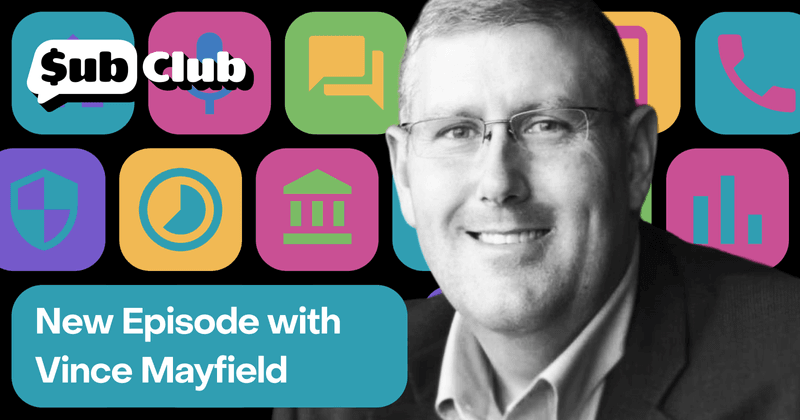Mistakes, monetization, and millions — Podcast with Vince Mayfield
When growth meets grit: how TalkingParents grew to $10m ARR.

How many apps start with a mission to scale?
It seems like an obvious question, but in reality, there probably aren’t that many. And while TalkingParents co-founder and CEO Vince Mayfield is no stranger to making mistakes while growing an app, he’s keenly aware of the importance of starting with scaling in mind.
“We knew we were just looking for that thing that seemed like the right fit — that we could take and make money [from] while we’re sleeping,” Vince says. His growth from a consultancy to $10 million in annual recurring revenue (ARR) shows that he’s achieved that goal.
But it wasn’t smooth sailing in the early days. “I’d like to tell you that what we did was genius and it all worked out the way we wanted it, but the reality is that we stumbled through and made mistakes. There was a lot of argument,” Vince explains. The talent behind TalkingParents learned that they could have monetized earlier than they did.
Realizing the target audience
When trying to build an app, understanding the customer is priority number one. Vince and his partner came from a professional services background, so they were primed to have customers direct them. A focus on product — and knowing customers — didn’t come naturally.
“We thought our customer was the court system,” Vince explains. He and his co-founder quickly realized that this wasn’t the case and that monetization of a subscription model was the way to fuel real growth.
Engaging with customers
But the lessons Vince and his co-founder learned aren’t just applicable to TalkingParents’ niche. Customer surveys about what features customers wanted paid dividends during the app’s early development and when it was scaling. At the start, when product-market fit is elusive, understanding customer preferences is the key to identifying a minimum viable product (MVP).
As an app grows, businesses naturally want to add extra value to keep that growth going. Continuously conversing with customers yields important insights that facilitate new feature development. A habit of surveying early and often has an outsized long-term payoff.
The importance of quality support
On top of this, premium product pricing demands premium support. “We go in and reply to every app review with a human response,” Vince emphasizes. “People then feel like they’re heard.” When customers feel listened to and respected, they’re more likely to reward that effort with loyalty — and may spread the good word about a quality app. This is something Vince is keen to drive with his customer support teams.
Selecting the right tools
The same level of care should apply to selecting tools: Opting for cheaper, easier-to-integrate tools in a rush to market might mean costly reengineering down the line. By planning to scale from the start — adhering to solid software engineering principles and taking care of integration switchability — you set yourself up for the future.
On the podcast…
Vince talks about the right way to raise prices, his painful lessons learned from picking the wrong tools, and how quality customer interactions are the key to subscription app development and growth.
Listen to the episode wherever you get your podcasts
You might also like
- Blog post
How to pre-sell app subscriptions on the web before launch
Save on platform fees, capture early revenue, and set your app up for launch success.
- Blog post
How to communicate a price increase — and keep your best subscribers
Price hikes don’t have to mean mass churn. Here’s how to get timing, messaging, and customer trust right.
- Blog post
Meet the Web Purchase button (why and where you should test it, today)
Link out to web purchases from your iOS app paywall.

